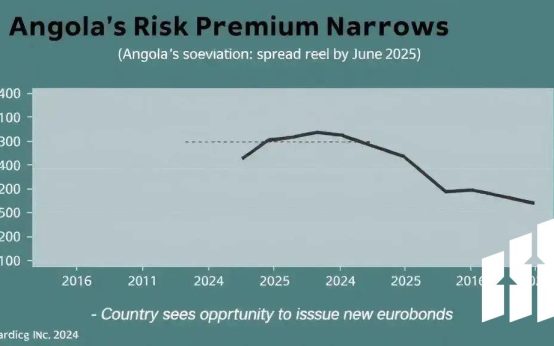Real estate investing: where to start involves understanding the basics, setting clear goals and budgets, choosing the right property type, exploring financing options, and managing your investment effectively for maximum returns.
Real estate investing: where to start often feels like a maze. But have you ever wondered what really matters when diving in? Let’s explore some clear steps to get you moving without feeling overwhelmed.
understanding real estate investing basics
Real estate investing begins with grasping some basic concepts. It involves purchasing property to generate income or gain profit over time. The primary types include residential, commercial, and rental properties. Understanding key terms like equity, appreciation, and cash flow helps you navigate the market more confidently.
Types of Real Estate Investments
Residential properties are homes where people live, such as single-family houses, apartments, or condos. Commercial properties involve offices, retail shops, and warehouses. Rental properties provide consistent income through tenant payments and can be part of either residential or commercial categories.
Why Invest in Real Estate?
Investing in real estate can offer several benefits including steady cash flow, potential tax advantages, and long-term appreciation. It’s considered a tangible asset, often less volatile than stocks, providing a way to diversify your portfolio.
Risks and Rewards
While real estate investing can be lucrative, risks exist. These include market fluctuations, unexpected repairs, and vacancy periods. Being informed about these challenges and having a clear strategy reduces risk and improves your chances of success.
Understanding real estate investing basics sets a strong foundation. Begin with studying the market, financial terms, and investment types before committing your resources.
setting your investment goals and budget

Setting clear investment goals and establishing a budget are crucial steps in real estate investing. Goals help define what you want to achieve, whether it’s generating monthly income, long-term appreciation, or diversifying assets. Your budget determines the scale and type of properties you can realistically pursue.
Defining Your Investment Goals
Ask yourself what you expect from your investment. Are you looking for steady cash flow through rentals, or aiming for properties that will increase in value over time? Setting specific, measurable goals helps guide your decisions and keeps you focused.
Creating a Realistic Budget
Evaluate your financial situation by considering available cash, credit options, and ongoing expenses like maintenance, taxes, and insurance. Your budget should include not only the purchase price but also closing costs and reserves for unforeseen costs.
Balancing Risk and Reward
Understanding risk tolerance is key when setting goals and budgets. Some investors prefer lower-risk properties with stable returns, while others are willing to take higher risks for greater rewards. Knowing your comfort level helps in choosing the right investments.
By carefully setting your investment goals and budget, you lay the groundwork for making smart and sustainable real estate decisions.
choosing the right type of property
Choosing the right type of property is a crucial decision in real estate investing. It depends on your goals, budget, and risk tolerance. Common options include residential properties, such as single-family homes or condos, and commercial properties, like office buildings or retail spaces.
Residential Properties
These tend to be easier for beginners because of steady demand. Rental income can be predictable, and the market is often more familiar. However, managing tenants and maintenance is part of the responsibility.
Commercial Properties
Commercial real estate typically offers higher returns but comes with increased complexity. Leasing terms are often longer, and you may need specialized knowledge or professional management.
Other Property Types
Consider also properties like vacation rentals, industrial spaces, or land for development. These can diversify your portfolio but might require more hands-on involvement or advanced market understanding.
Evaluating location, market trends, and property condition helps you make an informed choice. Align your selection with your investment objectives to maximize benefits.
navigating financing options

Navigating financing options is a vital part of successful real estate investing. Understanding the different types of loans and funding sources helps you find the best fit for your investment goals and budget.
Traditional Mortgages
Most investors start with conventional mortgages, which often require a good credit score and a down payment. These loans typically offer lower interest rates and longer repayment terms, making them suitable for many buyers.
FHA and VA Loans
FHA loans are government-backed and allow lower down payments, ideal for first-time investors. VA loans are available for veterans and offer competitive terms with little to no down payment.
Hard Money Loans
Hard money loans come from private lenders and provide quick access to funds but usually have higher interest rates and shorter terms. They are useful for short-term investments or flips.
Creative Financing
Options like seller financing, lease options, or partnerships can offer flexibility, especially if traditional loans aren’t an option. These methods require careful negotiation and clear agreements.
Evaluating each financing option’s pros and cons, interest rates, and repayment terms allows you to align your funding with your investment strategy effectively.
managing your property and maximizing returns
Effective property management is key to maximizing returns on your real estate investment. It involves overseeing tenants, maintenance, and finances to keep your property profitable and in good condition.
Tenant Management
Screen potential tenants carefully to ensure reliable income. Establish clear lease agreements and maintain good communication. Address tenant concerns promptly to reduce turnover and vacancies.
Property Maintenance
Regular upkeep prevents costly repairs and keeps tenants satisfied. Schedule routine inspections and respond quickly to maintenance requests to protect your investment’s value.
Financial Management
Track income and expenses precisely. Set aside reserves for unexpected costs and reinvest profits to improve or expand your portfolio. Using software can simplify budgeting and accounting.
Maximizing Returns
Consider strategies like increasing rent over time, adding value through renovations, or offering additional services to tenants. Staying informed about market trends helps you adjust to maximize profitability.
Strong property management balances tenant satisfaction with financial goals, ensuring your investment grows steadily and sustainably.
Getting started with real estate investing
Real estate investing can be a smart way to build wealth and generate income. By understanding the basics, setting clear goals, choosing the right property, navigating financing, and managing your investment well, you increase your chances of success.
Take your time to learn and plan carefully. Each step you take brings you closer to achieving your financial goals through real estate.
Remember, patience and good management are key to maximizing your returns and growing your portfolio.
FAQ – Real estate investing: where to start
What is the first step in real estate investing?
The first step is understanding the basics of real estate investing, including types of properties and key terms like equity and cash flow.
How do I set realistic investment goals?
Identify whether you want steady income, long-term appreciation, or portfolio diversification, then set specific and measurable objectives accordingly.
What types of properties are best for beginners?
Residential properties like single-family homes and condos are often easier for beginners due to steady demand and simpler management.
Which financing options should I consider?
Traditional mortgages, government-backed loans, hard money loans, and creative financing like seller financing are common options to evaluate based on your needs.
How can I manage my property effectively?
Screen tenants carefully, perform regular maintenance, keep detailed financial records, and communicate clearly with tenants to reduce vacancies and maximize returns.
What are some ways to increase returns on my investment?
You can increase returns by raising rent over time, renovating properties to add value, and staying informed about market trends to adjust your strategies.


 Miran Highlights Dual Goals of Fed and Interest Rate Outlook
Miran Highlights Dual Goals of Fed and Interest Rate Outlook  Are You a Robot? Unusual Activity Detected on Bloomberg
Are You a Robot? Unusual Activity Detected on Bloomberg  Keir Starmer Leads Business Delegation to India for Trade Pact
Keir Starmer Leads Business Delegation to India for Trade Pact  Takaichi Appoints Ex-Finance Minister as Secretary General of LDP
Takaichi Appoints Ex-Finance Minister as Secretary General of LDP  Argentina Continues Dollar Sales Amid Weakened Peso Crisis
Argentina Continues Dollar Sales Amid Weakened Peso Crisis  White House Calls on Democrats to Resolve Ongoing Government Shutdown
White House Calls on Democrats to Resolve Ongoing Government Shutdown